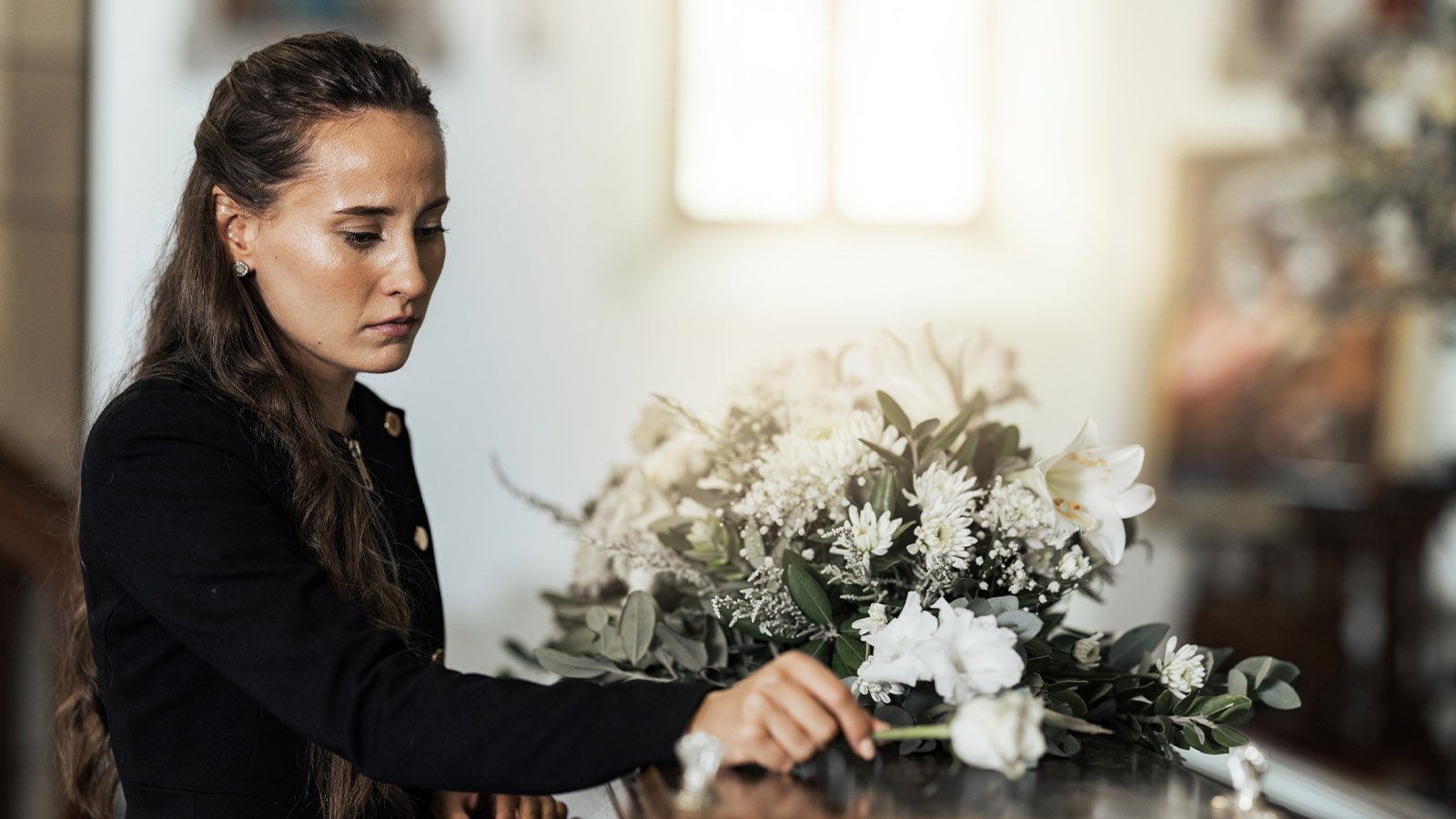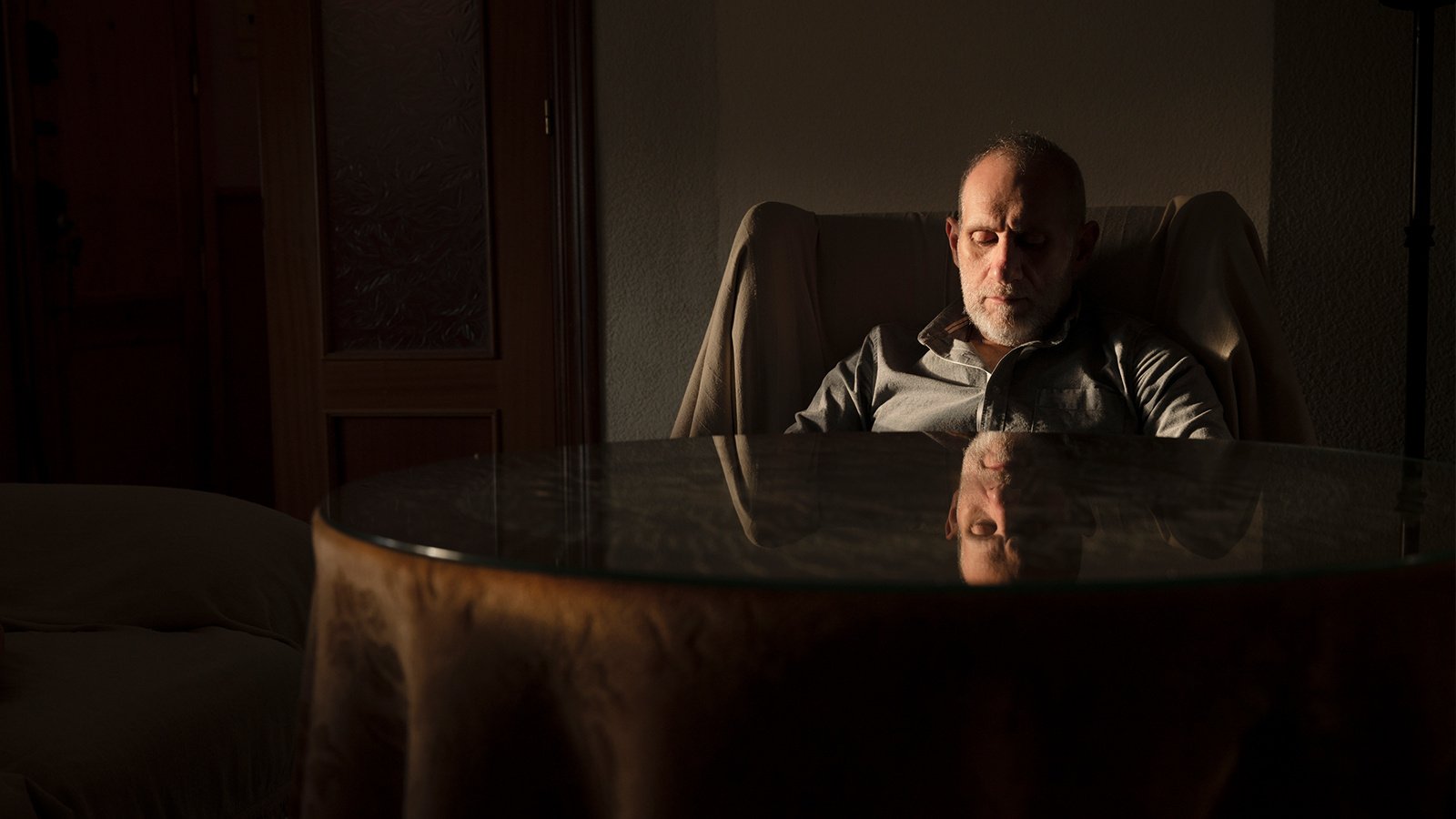Rebuilding Your Life: How to Move Forward After a Spouse’s Death

After her husband, Rob, died in a hiking accident, Clarissa was eventually confronted with a harsh reality.
There was a moment in my grief when the shock had worn away. And I was left with the rubble of the life that I had lived before. This life that we had loved, that we had built together, all of our plans for the future. Everything was gone.
And in the midst of surveying that destruction, I guess I realized I’m still here. My heart’s still beating. I’m still breathing. I’ve had to revisit that thought over and over again, to remind myself you’re still here, Clarissa. You’re still here.
It’s easy to think of purpose and rebuilding when it comes to the other people in my life: my kids or my parents or my friends, but sometimes it’s hard to be here for me. And that’s where I think the real work of rebuilding happens.
–Clarissa
What’s involved in moving forward
Setting the right expectations will help you to avoid self-doubt and discouragement. Rebuilding a future life without your spouse will take time—and it will require an openness to new ideas. Marriage and family therapist Ron Deal offers a helpful perspective:
I do think “rebuild” is the right word. It’s not “recover” your life. I don’t think we ever recover [that former life], because we’re changed forever. We were on one trajectory of life, but then we took a radical turn and now we’re on this new one. I have to rebuild within this new trajectory, this new reality. –Ron Deal
 Because you’re now on a “new trajectory” in your life, some changes will be necessary. If you try to resume what life was like before your spouse’s death, you’ll likely find yourself coming up short on your expectations about what can or “should” be accomplished. For example, your lawn might not get mowed as quickly as it had been in the past. You might need to sacrifice some social activities for the sake of shopping.
Because you’re now on a “new trajectory” in your life, some changes will be necessary. If you try to resume what life was like before your spouse’s death, you’ll likely find yourself coming up short on your expectations about what can or “should” be accomplished. For example, your lawn might not get mowed as quickly as it had been in the past. You might need to sacrifice some social activities for the sake of shopping.
Or, you might find that friendships you shared with your spouse won’t have the same dynamics as they once did. That doesn’t necessarily mean they will dissolve, but you might now need to take a bit more initiative than you had in the past.
So, changes will be needed. In more practical terms, what might rebuilding involve?
Looking beyond the losses
You might spend a significant amount of time thinking about what you do not have in your life since your spouse died. And that’s to be expected. And yet life continues, as do your responsibilities. That requires you to make adjustments. In order to do that, taking stock of your personal strengths will be important.
Knowing your strengths will help you decide when to ask for help and what responsibilities you can handle on your own.
Recognizing where your strengths are
Your personal strengths include:
- Your natural talents: the ranges of abilities that are part of God’s design for you. These are the abilities you are particularly drawn to and that usually come easy to you. For example, are you artistic? Logical and organized? Sensitive to the needs of others?
- Your learned skills: the abilities you’ve taken the time to learn, usually because of a need in your life. For example, reading, driving a car, cooking, using power tools, etc.
- Your positive character traits: the values that shape how you use your talents and skills to accomplish goals that you consider worthwhile. For example, kindness, honesty, humility, self-control, gentleness, etc.
Taking stock of your strengths
Use these questions to help you identify your personal strengths.
- What strengths helped me get through past hard times in my life?
- What are some things I’ve done since my spouse died that I’d never had to do in the past?
- What are some past accomplishments of mine? (Think about goals you’ve achieved at work, skills you’ve learned, successes with hobbies, and contributions you’ve made in your community or in your family’s and friends’ lives.)
- What strengths did I use to accomplish those things?
- What strengths have others noticed in my life? (If you aren’t sure, then ask people who know you well.)
Ways personal strengths can be helpful
Identifying these personal strengths reminds you that you have something to work with as you make adjustments in your life and think about the future. For example:
- Susan, who loves to learn, read as much as she could about grief to feel prepared for what she might experience.
- Norm, who has a flair for writing, began journaling about his grief, which helped him deal with the sense of chaos that grief had created in his life.
- Fred, who had always been an organizer/planner, found a strategy that guided how he made changes in his life.
- Barbara, who had always enjoyed serving others, looked for ways to reconnect with people who needed help in their lives.
A common barrier to moving forward
Sometimes, widows and widowers resist the thought of planning a future without their spouses because it feels like they are “dismissing” or being “disloyal” to their deceased partners. But thinking about your future doesn’t mean forgetting about your spouse. Therapist Dr. Zoricelis Davila puts it this way: “Yes, I’m hurting because I no longer have that person here, but I’m also acknowledging that person left me with good memories, with good lessons, with good experiences. Focusing on the legacy of the person will remind me of the value of having had that person in my life.”
It’s this way of thinking that helped Jonathan move forward after his wife, Wynter, died suddenly. “You know, my future still includes Wynter because I wouldn’t be where I’m at without her. I wouldn't be the man I am without her, without 15 years and 27 days together. Without that relationship, without that friendship, I wouldn’t be who I am.”
In a similar way, Clarissa acknowledged the ongoing influence of what she had learned from her husband as she thought about what lay ahead for her:
If I’ve learned anything from him, it’s that I can actually learn to live well. I can love others more wholeheartedly because I see how fragile life is. I can forgive more quickly because I realize how quickly things can be lost and how quickly people that I love can be gone.
I can keep short accounts. I can say, I’m sorry—and I love you.
I can make great plans for the future, because I know that life is always precious, however long or short it is. I want to live each day well, and so I guess in looking at death, it has taught me to live well, maybe begrudgingly, but to do it all the same.
–Clarissa
Getting more help for moving forward
 Jonathan and Clarissa also had something else in common as they thought about their rebuilding process.
Jonathan and Clarissa also had something else in common as they thought about their rebuilding process.
Jonathan: “But somehow, some way, I had to believe that God had life for me.”
Clarissa: “And God must have a purpose for me to be here. There must be something more for me to do. And also the one whom we call ‘Creator,’ God, knows all about rebuilding things. God’s specialty is rebuilding things. So if that’s His specialty, I’m fair game: I would love to have You rebuild me too. When I trust myself to God and His care, I’m entrusting myself to the Master Artisan, the Master Builder. And I think He’ll make something beautiful in His good time.”
As you think about the future, your rebuilding process, you could also ask for guidance from the Lord, just as Jonathan and Clarissa have.
Some key takeaways
Because you’re facing a new life ahead, taking stock of your “tools” for rebuilding will be a good way to start the process. Ask some people who know you well to tell you what they’ve seen in you.
- Inventory your talents, learned skills, and positive character traits.
- Reflect on how you’ve used these talents, skills, and traits in the past to accomplish worthwhile goals. For those that are especially important to you, consider the possible ways you might develop them even further.
- Ask the Lord for help in your life-rebuilding project. To learn more about the process, you can join a GriefShare group, where the guidance of the Lord is central to dealing with your loss and looking forward toward the future. Find a grief support group here.


